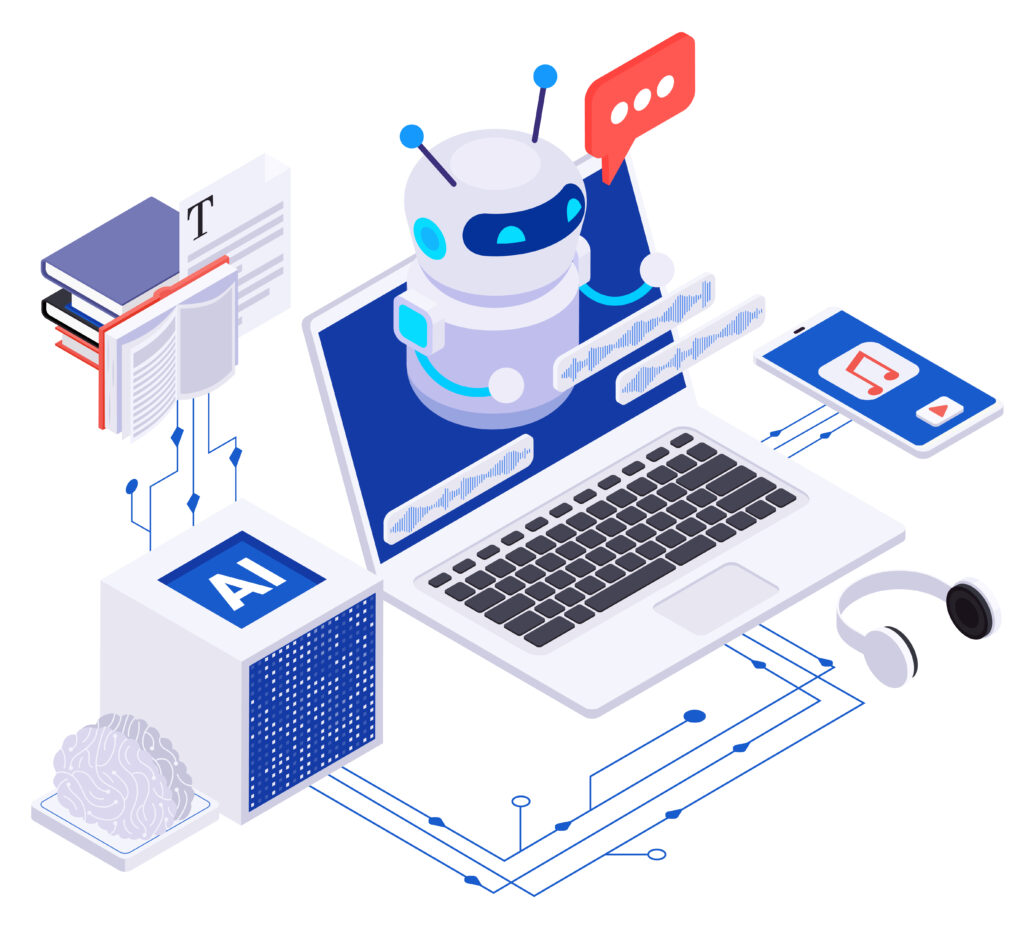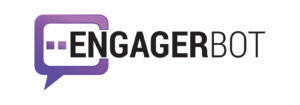Introduction to Education & Coaching Chatbots
In the modern digital era, education and coaching are undergoing a profound transformation. Education chatbots, powered by artificial intelligence (AI), are emerging as essential tools for enhancing student learning, engagement, and institutional efficiency. Unlike traditional methods of instruction, chatbots offer personalized, interactive, and on-demand support, bridging gaps between learners and educators. These AI-driven assistants can handle academic queries, provide study materials, guide students through complex topics, and track their progress effectively.
The increasing reliance on online learning platforms, coaching centers, and virtual classrooms has accelerated the adoption of educational chatbots. They serve as virtual tutors, assisting students 24/7, offering instant feedback, and enabling self-paced learning. For educators, chatbots streamline administrative tasks, monitor student performance, and even suggest tailored lesson plans based on learning patterns.
By integrating AI, machine learning (ML), and natural language processing (NLP), education chatbots can analyze large volumes of student data to identify strengths, weaknesses, and knowledge gaps. This not only enhances the quality of education but also fosters a more personalized, student-centric learning environment. The rise of education chatbots signals a shift toward intelligent, adaptive, and responsive learning systems that cater to individual needs while supporting institutional growth.
The Evolution of Chatbot Technology in Education
The journey of chatbot technology in education has evolved dramatically over the past decade. Initially, chatbots were simple automated tools, primarily designed to answer frequently asked questions or provide static study content. These early systems lacked personalization and could not adapt to students’ unique learning needs. However, with advancements in AI and NLP, chatbots have become highly intelligent assistants capable of understanding context, interpreting complex queries, and providing real-time guidance.
Modern education chatbots are capable of analyzing student interactions to identify learning patterns and preferences. This evolution has been fueled by the widespread adoption of e-learning platforms, mobile applications, and virtual classrooms, which demand scalable, accessible, and engaging educational support. Chatbots now serve as virtual mentors, offering individualized guidance, recommending study materials, and even conducting interactive quizzes to assess comprehension.
Moreover, chatbots in coaching and training programs are increasingly integrated with Learning Management Systems (LMS), ensuring that every student receives targeted support based on their progress and performance. The integration of voice-based interfaces has also enabled more conversational learning experiences, allowing students to engage naturally without relying solely on text.
The evolution of chatbots in education reflects a broader trend of digital transformation in learning, emphasizing personalization, accessibility, and continuous improvement. As AI technology advances further, education chatbots are poised to become indispensable tools for both learners and educators worldwide.
Core Functions of an Education Chatbot
Education and coaching chatbots are designed to perform a wide range of core functions that enhance both learning outcomes and administrative efficiency. One of the most fundamental tasks is answering student queries in real time, providing accurate explanations, and clarifying doubts promptly. Unlike conventional support systems, chatbots can handle multiple student interactions simultaneously, ensuring no learner is left waiting for assistance.
Another key function is personalized learning assistance, where chatbots analyze student behavior and performance data to provide tailored guidance. They can recommend additional resources, highlight areas that need improvement, and suggest practice exercises or quizzes. By doing so, chatbots empower students to take control of their learning journey while enabling educators to focus on higher-level teaching tasks.
Chatbots also facilitate administrative functions, such as scheduling classes, sending reminders, managing assignments, and tracking attendance. For coaching centers, this reduces administrative overhead and ensures smoother operational workflows. Advanced education chatbots can even monitor student engagement and alert teachers to potential issues like declining performance or lack of participation.
Furthermore, chatbots support interactive learning, providing gamified experiences, conducting assessments, and offering instant feedback. This dynamic interaction fosters active learning, improves retention, and makes education more engaging. In essence, the core functions of education chatbots bridge the gap between traditional teaching and modern digital learning, delivering efficiency, personalization, and innovation in one comprehensive system.
Enhancing Student Engagement and Motivation
Student engagement and motivation are critical factors in the success of any learning program. Education chatbots play a significant role in keeping students engaged by providing interactive, personalized, and responsive learning experiences. Unlike static content, chatbots can maintain real-time conversations, answer questions instantly, and adapt explanations to the learner’s level of understanding.
The use of gamification techniques within chatbots further enhances motivation. By integrating quizzes, rewards, and interactive challenges, chatbots make learning enjoyable and stimulate healthy competition among students. They also track progress and provide personalized feedback, which helps learners recognize their achievements and areas for improvement.
Chatbots are particularly effective in remote or online learning environments, where student attention can easily wane. By offering instant support, reminders, and adaptive learning pathways, chatbots ensure continuous engagement and reduce dropout rates. Students can interact with chatbots at their convenience, creating a self-directed learning environment that encourages curiosity and active participation.
Furthermore, education chatbots can identify patterns in student behavior, such as frequent queries or repeated mistakes, and suggest targeted interventions. This level of insight allows educators to customize instruction, ensuring that each student remains motivated and engaged throughout their learning journey. By fostering interactive, personalized, and supportive experiences, education chatbots are redefining the way students learn and interact with educational content.
AI and Machine Learning in Educational Chatbots

Artificial intelligence and machine learning are the backbone of modern educational chatbots, enabling them to provide intelligent, adaptive, and context-aware assistance. AI allows chatbots to understand natural language, interpret complex questions, and generate accurate responses, simulating the role of a personal tutor. Machine learning, on the other hand, helps chatbots learn from each interaction, improving their responses and recommendations over time.
Through AI and ML, chatbots can analyze large volumes of educational data, identify knowledge gaps, and personalize learning paths for each student. For example, a chatbot can detect if a student struggles with certain mathematical concepts and provide additional explanations, practice exercises, or resources tailored to their learning style.
Moreover, AI-powered chatbots are capable of predictive analysis, anticipating student needs and proactively offering guidance. This might include suggesting additional courses, highlighting topics for review, or recommending study schedules to maximize learning outcomes. Integration with LMS platforms enables chatbots to track progress, performance metrics, and engagement patterns, providing actionable insights to educators.
By continuously adapting to student behavior, AI and ML empower chatbots to offer personalized, data-driven support. This not only enhances the quality of education but also supports educators in delivering targeted instruction, making learning more efficient, interactive, and impactful.
Personalized Learning Experiences Through Chatbots
Personalized learning has become a cornerstone of modern education, and education chatbots play a pivotal role in delivering it. By leveraging AI, machine learning, and data analytics, chatbots can assess each student’s learning style, strengths, and weaknesses. They then provide customized recommendations, tailored study plans, and interactive exercises designed to optimize understanding and retention.
Unlike traditional classroom approaches, which often adopt a one-size-fits-all methodology, chatbots ensure that each learner receives attention and guidance suited to their individual needs. For instance, a student struggling with grammar rules in language courses can receive focused lessons, repeated practice, and instant feedback, while advanced students can access more challenging materials to keep them engaged.
Personalized chatbots also adapt to a student’s pace. They can monitor progress in real-time, identify areas requiring reinforcement, and dynamically adjust content accordingly. This ensures that students are not overwhelmed or left behind, creating a more effective and stress-free learning environment.
Furthermore, chatbots can incorporate multimedia content such as videos, quizzes, and interactive tutorials to match different learning preferences. By delivering highly individualized educational experiences, chatbots not only enhance academic performance but also boost confidence, motivation, and long-term learning outcomes.
24/7 Academic Assistance for Students
One of the most significant advantages of education chatbots is their ability to provide round-the-clock academic assistance. Unlike traditional learning environments with fixed hours, chatbots are available 24/7, ensuring students have access to support whenever they need it. This is particularly beneficial for online learners, working students, and those in different time zones.
Chatbots can answer questions, provide explanations, clarify doubts, and even guide students through complex problem-solving tasks at any time. This level of accessibility reduces dependence on educators for routine queries and empowers students to take control of their learning journey.
Additionally, chatbots can act as study companions, reminding students of upcoming assignments, quizzes, or deadlines. They can also suggest additional resources or practice exercises based on recent interactions, ensuring continuous engagement and progress.
The 24/7 availability also reduces anxiety and enhances confidence among students, as they know help is always at hand. In remote or under-resourced regions, chatbots can bridge gaps in access to quality education, providing essential guidance and learning support without geographical limitations.
By offering constant availability, instant responses, and adaptive learning support, chatbots have become indispensable tools for modern education and coaching environments.
Streamlining Administrative Tasks in Schools and Coaching Centers
Education chatbots are not limited to academic support—they also play a vital role in streamlining administrative tasks for schools and coaching centers. From attendance tracking and schedule management to assignment collection and performance monitoring, chatbots automate repetitive processes that traditionally consume significant time.
For administrators, this automation reduces workload, minimizes errors, and ensures timely completion of tasks. Chatbots can generate reports, send notifications to students and parents, and maintain digital records without human intervention. This frees educators to focus on teaching, mentoring, and personalized student support rather than administrative chores.
Additionally, chatbots can assist with admission inquiries, fee management, and course registrations, providing prospective students with instant guidance and reducing bottlenecks in institutional workflows. Integration with school management systems and LMS platforms ensures that all data is synchronized, accurate, and readily accessible for decision-making.
By streamlining administrative operations, chatbots enhance institutional efficiency, reduce costs, and improve overall student experience. They act as intelligent assistants that support educators and administrators, allowing educational institutions to operate more smoothly and focus on delivering high-quality learning outcomes.
Integration with Learning Management Systems (LMS)
Integration with Learning Management Systems (LMS) is a key feature that enhances the capabilities of education chatbots. By connecting with LMS platforms, chatbots gain access to student records, course materials, progress data, and assessment results. This enables them to deliver personalized guidance, track learning outcomes, and provide actionable insights for both students and educators.
Through LMS integration, chatbots can recommend study plans, highlight upcoming tasks, and suggest revision strategies tailored to individual student needs. They can also monitor engagement levels, identify areas of concern, and notify teachers or coaches to intervene if necessary.
Furthermore, chatbots can assist in course navigation, content retrieval, and interactive learning, making LMS platforms more user-friendly and effective. Students can query the chatbot for specific lessons, assignments, or resources without manually searching the system, saving time and improving productivity.
The combination of chatbots and LMS technology creates a seamless learning ecosystem, where students benefit from personalized, responsive, and efficient support, and educators gain real-time insights into performance and engagement. This integration is transforming traditional education into a more intelligent, adaptive, and outcome-driven system.
Gamification and Interactive Learning Through Chatbots
Gamification is a powerful strategy to boost student engagement and motivation, and chatbots are increasingly incorporating game-based elements into learning. By providing interactive quizzes, challenges, and rewards, chatbots make learning enjoyable and reinforce knowledge retention.
Gamified experiences transform routine lessons into interactive and immersive sessions. Students receive instant feedback, track their progress, and compete in a healthy manner, which enhances motivation and encourages active participation. Chatbots can adapt the difficulty level based on student performance, ensuring that learners are continuously challenged without feeling overwhelmed.
Interactive learning through chatbots also supports critical thinking and problem-solving skills. For instance, chatbots can simulate real-world scenarios, prompt students to make decisions, and provide explanations for correct or incorrect choices. This method strengthens comprehension and encourages practical application of knowledge.
Moreover, gamification helps in reducing learning fatigue, keeping students engaged for longer periods, and fostering a sense of achievement. By combining gamified learning with adaptive AI technology, chatbots create a dynamic, interactive, and student-centric educational environment.
Data Privacy and Compliance in Educational Chatbots
As education chatbots collect and process sensitive student information, data privacy and regulatory compliance are critical considerations. Chatbots must adhere to standards such as FERPA (Family Educational Rights and Privacy Act) or regional privacy regulations to ensure that student data is secure, confidential, and used responsibly.
Advanced chatbots employ encryption, secure authentication, and access control mechanisms to protect data from unauthorized access. They also maintain audit logs, track interactions, and provide administrators with tools to manage privacy settings effectively.
Compliance ensures that educational institutions can implement chatbots without legal or ethical risks, while students and parents feel confident that personal information is handled securely. Furthermore, transparency regarding data usage and AI-driven recommendations builds trust in digital learning systems.
Maintaining strong data protection standards not only safeguards student privacy but also enhances the credibility and reliability of educational chatbots, making them a sustainable solution for modern learning environments.
Reducing Operational Costs for Educational Institutions
Education chatbots significantly reduce operational costs by automating repetitive tasks, minimizing administrative overhead, and optimizing resource allocation. Tasks such as answering common queries, scheduling classes, managing assignments, and tracking student engagement can be efficiently handled by chatbots, reducing the need for additional staff.
For coaching centers and online platforms, chatbots also reduce the cost of providing 24/7 support. Instead of hiring multiple support personnel, a single AI-powered chatbot can manage thousands of student interactions simultaneously, ensuring instant assistance without incremental costs.
Moreover, chatbots enhance learning efficiency, enabling educators to focus on high-impact teaching activities rather than administrative duties. This not only improves productivity but also maximizes return on investment for institutions. By reducing errors, improving workflow, and optimizing communication, chatbots contribute to cost-effective, high-quality education delivery.
Supporting Teachers and Educators with AI Assistance

Education chatbots are designed to augment, not replace, human educators. By handling routine queries, providing lesson suggestions, and monitoring student progress, chatbots free teachers to focus on creative instruction, mentorship, and individualized guidance.
They can analyze student interactions to highlight learning gaps, suggest intervention strategies, and generate reports for educators. This data-driven support enables teachers to make informed decisions and customize instruction for maximum impact.
Additionally, chatbots offer professional development support, providing teachers with access to updated resources, teaching strategies, and AI-driven insights. By partnering with AI, educators can enhance teaching effectiveness, improve student outcomes, and streamline classroom management.
Multilingual and Inclusive Education via Chatbots
Education chatbots support multilingual communication, enabling students from diverse linguistic backgrounds to access learning resources in their preferred language. This promotes inclusive education, ensuring no student is left behind due to language barriers.
By understanding multiple languages and dialects, chatbots facilitate interactive learning, assessments, and personalized guidance for a broader range of learners, including non-native speakers and international students.
This capability also extends to inclusive learning, accommodating students with disabilities through adaptive communication, speech-to-text functions, and tailored accessibility features. Multilingual and inclusive chatbots contribute to equitable educational opportunities in global learning environments.
Challenges in Implementing Education Chatbots
Despite their advantages, implementing education chatbots comes with challenges. Ensuring accurate AI responses, integrating with existing LMS systems, and maintaining data privacy require careful planning and technical expertise.
Other challenges include student acceptance, avoiding over-reliance on AI, and ensuring content aligns with curriculum standards. Institutions must also consider costs of deployment and ongoing maintenance.
Addressing these challenges through proper training, monitoring, and continuous improvement ensures successful chatbot adoption and maximizes benefits.
Future Trends in AI-Powered Education and Coaching
The future of educational chatbots is promising, with trends such as adaptive learning, emotional intelligence, and predictive analytics reshaping student experiences. AI-powered systems will offer more immersive, personalized, and proactive support, integrating virtual reality, gamification, and real-time performance tracking.
Chatbots will increasingly assist teachers in curriculum design, assessment, and student mentoring, creating a fully digital, yet highly human-centered learning ecosystem.
Case Studies of Successful Education Chatbots
Several institutions have successfully implemented chatbots to enhance learning outcomes. Examples include Duolingo, which uses AI chatbots for language practice, and Georgia State University, which deployed chatbots to improve student enrollment and engagement.
These case studies demonstrate how chatbots can increase accessibility, reduce administrative load, and personalize learning, serving as models for global adoption.
Conclusion: The Future of Learning with Digital Assistants
Education and coaching chatbots are redefining modern learning. By combining AI, machine learning, and natural language processing, these tools provide personalized, accessible, and efficient educational support.
As adoption grows, chatbots will continue to enhance student engagement, support educators, reduce operational costs, and foster inclusive education. The future of learning is digital, interactive, and AI-driven, making chatbots an indispensable component of next-generation education.

